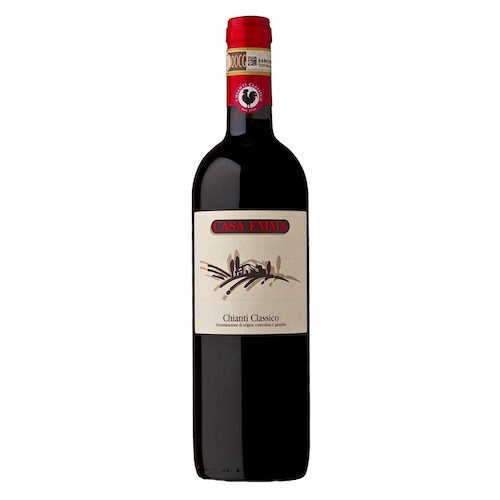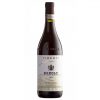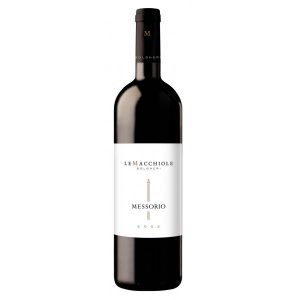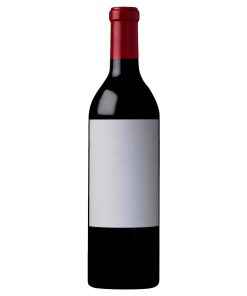-
×
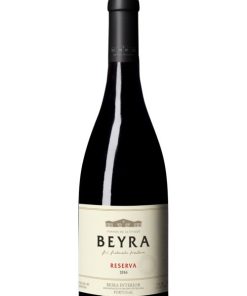 2021 Beyra Reserva Tinto 750ML
1 × $17.99
2021 Beyra Reserva Tinto 750ML
1 × $17.99 -
×
 2018 Fattoria La Lecciaia Brunello di Montalcino 750ML
1 × $38.99
2018 Fattoria La Lecciaia Brunello di Montalcino 750ML
1 × $38.99 -
×
 2015 Chateau Boyd-Cantenac 750ML
1 × $65.99
2015 Chateau Boyd-Cantenac 750ML
1 × $65.99 -
×
 2022 Chateau Fontanes Languedoc Pic Saint Loup Rouge 750ML
1 × $20.99
2022 Chateau Fontanes Languedoc Pic Saint Loup Rouge 750ML
1 × $20.99 -
×
 2019 Lohsa Mandrone di Lahsa Maremma Toscana 750ML
1 × $49.99
2019 Lohsa Mandrone di Lahsa Maremma Toscana 750ML
1 × $49.99
2017 Casa Emma Chianti Classico
2017 Casa Emma Chianti Classico
Chianti Blend refers to classic, long-established combination of wine grapes used in the wines of Chianti and other parts of Tuscany. The blend’s primary constituent is Tuscany’s favorite grape variety, Sangiovese. Chianti’s DOCG’s rules require a minimum 70 percent component. The figure rises to 75 for Chianti Colli Senesi, and 80 percent for Chianti Classico.
This can be accompanied by small quantities of lesser-known Tuscan grape varieties Canaiolo, Colorino, Ciliegiolo and Mammolo. The typical wine made from this blend shows aromas of red fruits, violets, dried herbs and bitter cherries.
The Chianti blend has evolved over time, adapting to shifts in consumer preference and advances in vineyard technology. There was significant controversy when the Chianti appellation laws officially sanctioned the red Bordeaux varieties Cabernet Sauvignon, Cabernet Franc and Merlot for use (up to 15 percent) in Chianti wines. Purists viewed this change with a mix of suspicion and regret, while others welcomed the dark-fruit aromas and depth of color the Bordeaux varieties bring to Chianti.
Prior to 2006, white wine grapes (most often Trebbiano and Malvasia) were routinely used as part of the Chianti Blend. This is now forbidden in all Chianti wines – with Chianti Colli Colli Senesi being the last to fully abandon the practice in 2015.
Chianti Classico is the heartland of the Chianti wine region – its traditional and longest-established viticultural area. The term classico is used in this way in several Italian wine regions (Orvieto and Valpolicella, for example), although Chianti is the most famous example. The typical Chianti Classico wine is a ruby-red, Sangiovese-based wine with aromas of violets and cherries and a hint of earthy spice.
Since the 1920s bottles of Chianti Classico wine have been marked by the DOCG’s black cockerel (Gallo Nero) logo. However bottles sold in the US are not adorned with the bird, after a long running legal dispute begun by E&J Gallo Winery in 1991 was concluded in favor of the American company.
Related products
$798.00
2020 Domaine des Lambrays Clos des Lambrays Grand Cru 2020 Domaine des Lambrays Clos des Lambrays Grand Cru, A fresh red, with black currant and black cherry flavors shaded by floral, iron, earth and spice elements. Fluid and on the elegant side, with a solid underlying framework of tannins. Turns a bit leaner on the [...]
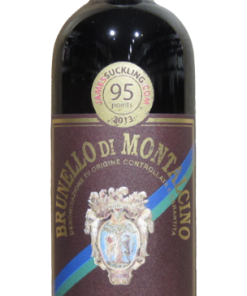 2018 Fattoria La Lecciaia Brunello di Montalcino 750ML
2018 Fattoria La Lecciaia Brunello di Montalcino 750ML 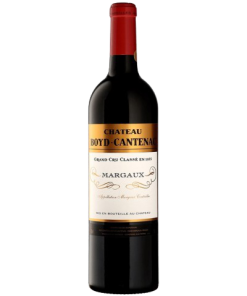 2015 Chateau Boyd-Cantenac 750ML
2015 Chateau Boyd-Cantenac 750ML  2022 Chateau Fontanes Languedoc Pic Saint Loup Rouge 750ML
2022 Chateau Fontanes Languedoc Pic Saint Loup Rouge 750ML  2019 Lohsa Mandrone di Lahsa Maremma Toscana 750ML
2019 Lohsa Mandrone di Lahsa Maremma Toscana 750ML 